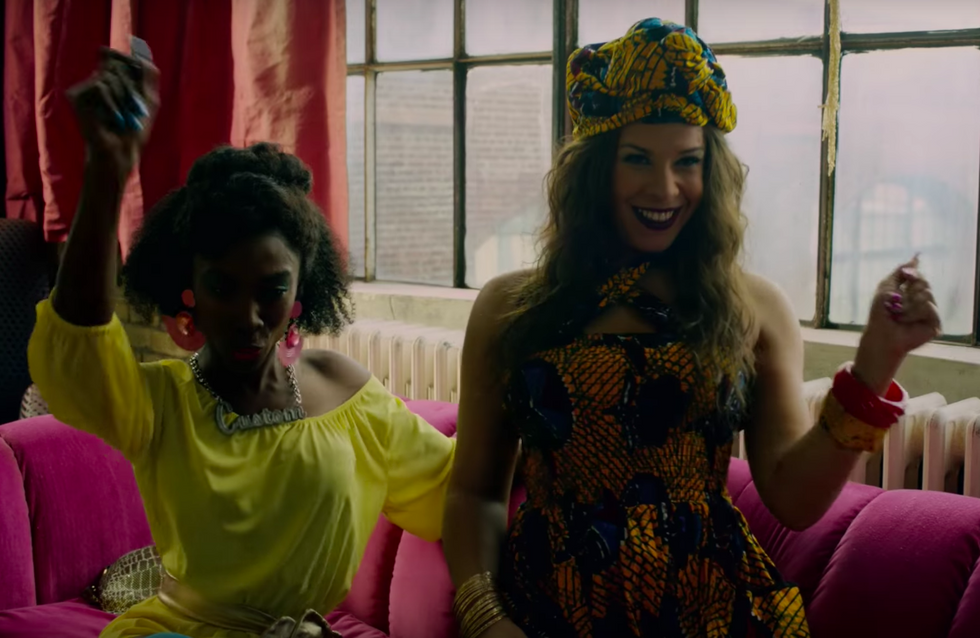Without a doubt, 80's ballroom culture is an inherent part of LGBT culture's roots. It originated the art of "voguing", which now has its own competitive league and inspired Madonna's 90's anthem, "Vogue." Jennie Livingston made the documentary "Paris Is Burning" about it, reminding us of the struggles LGBT individuals had to face in recent history and inviting us into the lively, powerful culture of gay and trans people owning it. "Paris is Burning" is still quoted today on gay cultural staple "RuPaul's Drag Race," which has turned children from the evolution of this club scene into quasi-celebrities. If you're on the internet at all, you've heard of this show or seen bizarre, out-of-context clips of it. The show is easily consumable for people of all genders and sexualities not only because of the "sickening" fashion and makeup but because of its quotability and fun, unique vernacular. Sadly, a portion of the people who use it don't even know where it comes from.
Enter "Pose," FX's new drama set in the New York 80's ball culture. This show is here remind us not only of inherent parts of LGBT history but who was at the front of it, black trans women. There are struggles the characters in the show go through that are close to our own reality (For example, Damon's hyper-masculine father kicks him out for being gay, his mother calls his "lifestyle" sinful), but there are other struggles that aren't (Angel is a trans sex worker, her love interest won't publically acknowledge her). Rightfully, black trans women are the stars of this LGBT narrative, not white men with square jaws and cisgendered men pretending to be trans women, like Jared Leto in "Dallas Buyer's Club," who won an Oscar for his performance, and Jefferey Tambor in "Transparent," who won an Emmy and was fired for harassing trans women on set. These actors' accolades show we are sympathetic to the trans narrative, but that Hollywood is not sympathetic enough to cast them. Even "RuPaul's Drag Race" asks its trans contestants to subdue themselves; to keep the premise of the show easy to understand and to not confuse its unaware audience (there have always been trans drag performers). The rest of Hollywood either believes trans people are these tragic, rare figments that are impossible to find in real life or it believes its media needs recognizable names attached to sell. The platform of "Pose" gives trans women the opportunity to overcome this and become recognizable names. Its cast and its characters give the loud and clear message, "We're here, we're real, we're valid. We are not defined by the adversity that has plagued us."
"Pose" is ready to bring the ball back into the public eye like "Paris is Burning" did in the 90s. Before you question its relevance, remember representation is what humanizes us. According to the HRC, last year, 28 transgender people were killed by violent means, the highest ever recorded. According to the NCAVP, Transgender people were 3.7 times more likely to experience police violence compared to cisgender survivors and victims. We are amidst an epidemic of hate and transgender people of color were 6 times more likely to experience physical violence from the police compared to White cisgender survivors and victims. Violence against trans people is at its peak, and every facebook comments section with the word "transgender" is a war zone. These people have probably never met a trans person because it's simply not their reality. The media will expose them. Representation will humanize us. Everyone deserves to see themselves as the hero, and everyone deserves the ability to be seen as such.






















